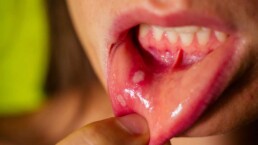If you have diabetes, you might want to look into natural ways to help manage your blood sugar. Traditional medicine is key, but home remedies and other therapies can also be helpful. Always talk to your doctor before trying them.
Table of Contents
ToggleThere are many natural options to consider, like dietary supplements, herbal remedies, and mind-body techniques. These can help you manage your diabetes better. Learning about these options can help you make smart choices for your health.
Key Takeaways
- Complementary and alternative medicine (CAM) can offer natural ways to support blood sugar management in diabetes.
- Discuss any CAM therapies with your doctor to understand the potential benefits and risks.
- Explore natural remedies like acupuncture, biofeedback, guided imagery, and herbal supplements.
- Incorporate lifestyle changes like a healthy diet, regular exercise, and stress management to help regulate blood sugar levels.
- Monitor your blood sugar closely and consult your healthcare team to ensure the safety and effectiveness of any natural approaches.
Understanding Complementary and Alternative Medicine for Diabetes
If you have diabetes, you might want to look into complementary and alternative medicine (CAM) to help with your treatment. CAM includes different medical systems and products not part of traditional Western medicine. These options can be used with your regular diabetes care or as an alternative.
What is Complementary and Alternative Medicine?
Complementary medicine is used with traditional treatments, while alternative medicine replaces them. For diabetes, CAM therapies include acupuncture, herbal supplements, meditation, and changing your diet. It’s key to know the good and bad of these options and talk about them with your doctor.
The Importance of Discussing Options with Your Doctor
Before adding any CAM to your diabetes plan, talk to your doctor. They can tell you about the safety and how well these therapies work. They can also warn you about possible side effects with your other medicines. This way, you can make smart choices about your health and avoid problems.

Acupuncture and Biofeedback Techniques
If you’re looking into alternative ways to handle your diabetes, consider acupuncture and biofeedback. These methods can ease chronic pain and neuropathy often seen with diabetes.
Acupuncture for Diabetes uses thin needles on the skin. It’s an ancient Chinese method aiming to balance energy, lessen inflammation, and ease nerve pain. Research suggests it can help with diabetic neuropathy, which causes numbness and pain in the hands and feet.
Biofeedback for Diabetes makes you more aware of how your body reacts to pain and stress. It uses special equipment to track your body’s signals, like heart rate and muscle tension. This helps you learn ways to relax and lessen diabetic neuropathy symptoms.
Acupuncture and biofeedback aren’t a replacement for regular medical care. Yet, they can be helpful additions to managing diabetes. Always talk to your doctor before adding these therapies to your care plan.

Guided Imagery and Relaxation Methods
Managing diabetes can be easier with guided imagery. This method involves creating positive mental pictures to help with healing and well-being. By imagining calm scenes, you can connect your mind and body. This can help your body respond better.
Positive visualization can also help with blood sugar control. It can reduce stress and anxiety, common issues for people with diabetes. By seeing yourself manage diabetes well, you gain a sense of control over your health. This technique can boost your overall health, helping keep blood sugar levels healthy.
Other relaxation techniques for diabetes include deep breathing, meditation, and progressive muscle relaxation. Adding these to your daily life can make you feel more balanced and ready to handle diabetes challenges.

Your mental health is key to managing diabetes. Using positive visualization and relaxation can help your body control blood sugar levels. This can improve your life quality.
Exploring Herbal and Mineral Supplements
Many people with diabetes look into herbal and mineral supplements as extra help. These natural options are getting attention for their possible benefits in controlling blood sugar and boosting health. Let’s look at some top supplements for diabetes.
Chromium: A Potential Aid for Insulin Sensitivity
Chromium is a key mineral for insulin in the body. Studies show that taking chromium can make insulin work better. This helps the body use insulin well and keep blood sugar stable. Chromium might be a good choice if you want to improve your insulin sensitivity.
Ginseng and Its Sugar-Lowering Effects
Ginseng is an old herb used in traditional medicine for many health issues, including blood sugar control. Research says ginseng can lower blood sugar. Adding ginseng to your diet or supplements could help manage your blood sugar.
The Role of Magnesium in Blood Sugar Control
Not having enough magnesium can lead to poor blood sugar control in diabetes. This mineral is vital for insulin and glucose metabolism. Getting enough magnesium, through food or supplements, can help keep blood sugar healthy and support diabetes care.
Vanadium: Normalizing Blood Sugar Levels
Vanadium is a mineral that might help balance blood sugar in diabetes. While we need more studies, some research hints that vanadium supplements could boost insulin sensitivity and glucose metabolism. Talk to your doctor if you’re thinking about trying this mineral.
Even though these supplements seem promising, always talk to your doctor before adding them to your diabetes care plan. They could affect your medicines or have other health effects. Getting professional advice is key.

Plant-Based Foods and Their Potential Benefits
Incorporating plant-based foods into your diet can change the game for diabetes management. These foods are tasty and full of fiber, vitamins, and minerals. They can help control blood sugar levels. Exploring plant-based foods can be a key part of managing diabetes.
Fiber-Rich Foods for Improved Blood Sugar Regulation
Fiber is key for people with diabetes. Foods high in fiber, like veggies, fruits, beans, and whole grains, slow down carb absorption. This leads to a steady rise in blood sugar, helping you stay energized and avoid spikes.
Adding fiber-rich plant-based foods to your meals is easy and effective. It supports your blood sugar levels well.
Spices and Herbs with Potential Therapeutic Properties
Some spices and herbs can also help manage diabetes. Cinnamon, for example, can make your body more sensitive to insulin, helping control blood sugar. Cloves and okra are also good for blood sugar levels.
Using these spices and herbs in your cooking is a tasty way to try plant-based remedies. But always talk to your doctor before adding them to your diabetes plan. They can help you use plant-based foods well in your care routine.
home remedies for diabetes
Some natural remedies claim to help with weight loss, which can help manage diabetes. But, it’s important to be careful with these “obesity remedies”. Many of these supplements and herbal treatments haven’t been well studied. They might even be unsafe.
Navigating the Potential Risks
Some natural weight loss remedies, like ephedrine and certain herbal supplements, can cause serious side effects. These include a high heart rate, high blood pressure, and even stroke. Always talk to your healthcare provider before using these treatments for diabetes.
Some natural weight loss remedies for diabetes might seem helpful but aren’t always safe or proven to work. Be careful and think about your health first.
Consulting with Your Doctor
Before trying home remedies for diabetes or other weight loss treatments, talk to your doctor. They can explain the risks and benefits. They can also suggest safe ways to manage your diabetes and lose weight.

Remember, making sure these treatments are safe is key when looking into natural remedies for diabetes. Work with your doctor to find the best way to support your health and well-being.
Lifestyle Modifications for Better Blood Sugar Management
Making healthy lifestyle changes for diabetes can really help manage your blood sugar. Focus on exercise for diabetes and stress management for diabetes.
The Importance of Exercise and Physical Activity
Regular exercise boosts your body’s insulin sensitivity. This means your muscles use glucose better. Try to do at least 30 minutes of moderate exercise, like brisk walking, swimming, or cycling, every day. This can greatly help with managing your diabetes.
Managing Stress and Getting Quality Sleep
Stress and poor sleep and diabetes are closely linked. High stress can mess with hormone balance and insulin, causing blood sugar to swing. Use stress-reducing activities like meditation, yoga, or deep breathing. Also, aim for 7-9 hours of good sleep each night to help your health and blood sugar control.
Adding these lifestyle changes to your daily life is a big step towards better blood sugar management and health.
Tracking and Monitoring Blood Sugar Levels
Keeping your blood sugar levels healthy is key to managing diabetes. Regular checks on your blood sugar give you important info. This info helps you see how your body reacts to food, exercise, and medicine. By tracking your blood sugar, you can adjust your diabetes plan for better control.
Using a home glucose meter is a great way to check your blood sugar. These devices let you test your levels easily and quickly. They give you real-time info about how your body reacts in different situations. Keeping track of your readings helps you spot patterns and trends. This can help you understand your diabetes better.
- Establish a regular blood sugar testing routine: Aim to test your blood sugar at the same times each day, such as before meals, after meals, and before bedtime.
- Record your results: Keep a detailed log of your blood sugar readings, noting the time, date, and any relevant factors, such as the foods you’ve eaten or the activities you’ve performed.
- Analyze your data: Look for patterns in your blood sugar levels, such as spikes or dips, and identify potential triggers or influencing factors.
- Discuss your findings with your healthcare provider: Share your blood sugar log and any insights you’ve gained with your doctor, who can help you make adjustments to your diabetes management plan.
By carefully monitoring and tracking your blood sugar, you can learn more about how your body reacts to different things. This knowledge lets you make better choices and manage your diabetes more effectively.
The Role of Diet and Nutrition
Your diet is key to managing diabetes. Eating low-glycemic foods helps prevent blood sugar spikes. These foods are absorbed slowly, keeping your blood sugar steady.
By eating these foods, you can control your blood sugar better. This supports your overall health.
Choosing Low-Glycemic Foods for Steady Blood Sugar
The glycemic index (GI) shows how fast a food raises your blood sugar. Foods with a low GI, like whole grains and leafy greens, digest slowly. They release glucose into your bloodstream more gradually.
Choosing these low-glycemic foods for diabetes helps keep your blood sugar stable.
The Benefits of Chromium and Magnesium-Rich Foods
Adding chromium and magnesium-rich foods to your diet also helps with blood sugar control. Foods like whole grains and nuts are great sources of these minerals. They help your body use insulin better and manage glucose.
By eating these foods, you help your body regulate blood sugar naturally.
Approach “Medicinal” Foods with Caution
Many foods and plants claim to have healing properties, but their effectiveness for diabetes is often not proven well. This is because there are few human studies or small samples. It’s wise to be careful with these foods and talk about their risks and benefits with your doctor.
It’s right to be cautious with foods said to be medicinal, as the evidence for their use in diabetes varies a lot. Some natural remedies might help, but we don’t know for sure. Others could even harm your diabetes treatment plan.
Before adding any “medicinal” foods or supplements, talk to your doctor. They can tell you about the risks and benefits and how they might affect your current treatment. Your health and safety should always come first when trying new ways to manage diabetes.
By being careful and working with your healthcare team, you can make smart choices for your diabetes care. The goal is to try natural options but keep your safety and health in mind.
Conclusion
Managing diabetes is a complex task, but you can use natural remedies, lifestyle changes, and medical treatments to help. By learning about therapies like acupuncture, guided imagery, and herbal supplements, you can work with your doctor to find what’s best for you.
It’s important to talk to your doctor before trying any new therapies. This ensures they are safe and work well for you. By using natural and medical treatments together, you can improve your diabetes care and overall health.
Starting with home remedies and natural ways to manage blood sugar is a good first step. But, your approach should fit your own needs. Keep learning, talk to your healthcare team, and try different things to find what works best for you.
FAQ
What can my diabetes treatment include?
Your diabetes treatment might include traditional medicines, alternative therapies, and natural remedies. These options include supplements, guided meditation, acupuncture, and biofeedback techniques.
What is complementary and alternative medicine?
Complementary and alternative medicine are different health care systems and practices not part of traditional medicine. They can be used with traditional treatments or instead of them.
Why is it important to discuss complementary or alternative treatments with my doctor?
Talking to your doctor about these treatments is key. It helps understand their benefits and risks. This ensures they are safe and work well.
How can acupuncture and biofeedback help with diabetes?
Acupuncture uses thin needles on the skin to help with chronic pain and neuropathy from diabetes. Biofeedback helps you manage your body’s pain response. It focuses on relaxation and stress reduction.
How can guided imagery and relaxation techniques benefit diabetes management?
Guided imagery is a way to relax by thinking of peaceful images, like ocean waves. It aims to ease diabetes symptoms.
What are some herbal and mineral supplements that may help with diabetes management?
Chromium can improve insulin sensitivity. Ginseng might lower sugar levels. Magnesium helps with blood sugar control, and vanadium can normalize blood sugar in some studies.
How can plant-based foods and certain spices and herbs help manage blood sugar levels?
Plant-based foods are full of fiber, vitamins, and minerals that help with blood sugar. Fiber slows down the digestion of carbs, keeping blood sugar levels steady. Spices like cinnamon and herbs like okra might also help manage diabetes.
What should I be cautious about when considering natural remedies for weight loss and diabetes?
Be careful with natural remedies for weight loss and diabetes. Many haven’t been well-studied and could be unsafe. Always talk to your doctor before trying them, as some can have serious side effects.
How can lifestyle factors impact blood sugar management?
Lifestyle choices like exercise, stress management, and good sleep affect blood sugar. Exercise makes insulin work better. Stress and sleep quality also impact insulin and blood sugar levels.
Why is it important to regularly monitor my blood sugar levels?
Checking your blood sugar with a home meter helps you see how your body reacts to different things. Keeping track of these levels helps you adjust your diabetes plan.
How can dietary choices affect blood sugar management?
Eating low-glycemic foods slows down carb absorption, preventing blood sugar spikes. Foods rich in chromium and magnesium, like whole grains and nuts, also help with blood sugar control.
What should I keep in mind when considering “medicinal” foods for diabetes?
Be cautious with foods claimed to have medicinal effects for diabetes. The evidence for their benefits is often weak. Always talk to your doctor about their risks and benefits.
Source Links

This article is medically reviewed by Dr. Chandril Chugh, Board-Certified Neurologist, providing expert insights and reliable health information.
Dr. Chandril Chugh is a U.S.-trained neurologist with over a decade of experience. Known for his compassionate care, he specializes in treating neurological conditions such as migraines, epilepsy, and Parkinson’s disease. Dr. Chugh is highly regarded for his patient-centered approach and dedication to providing personalized care.








